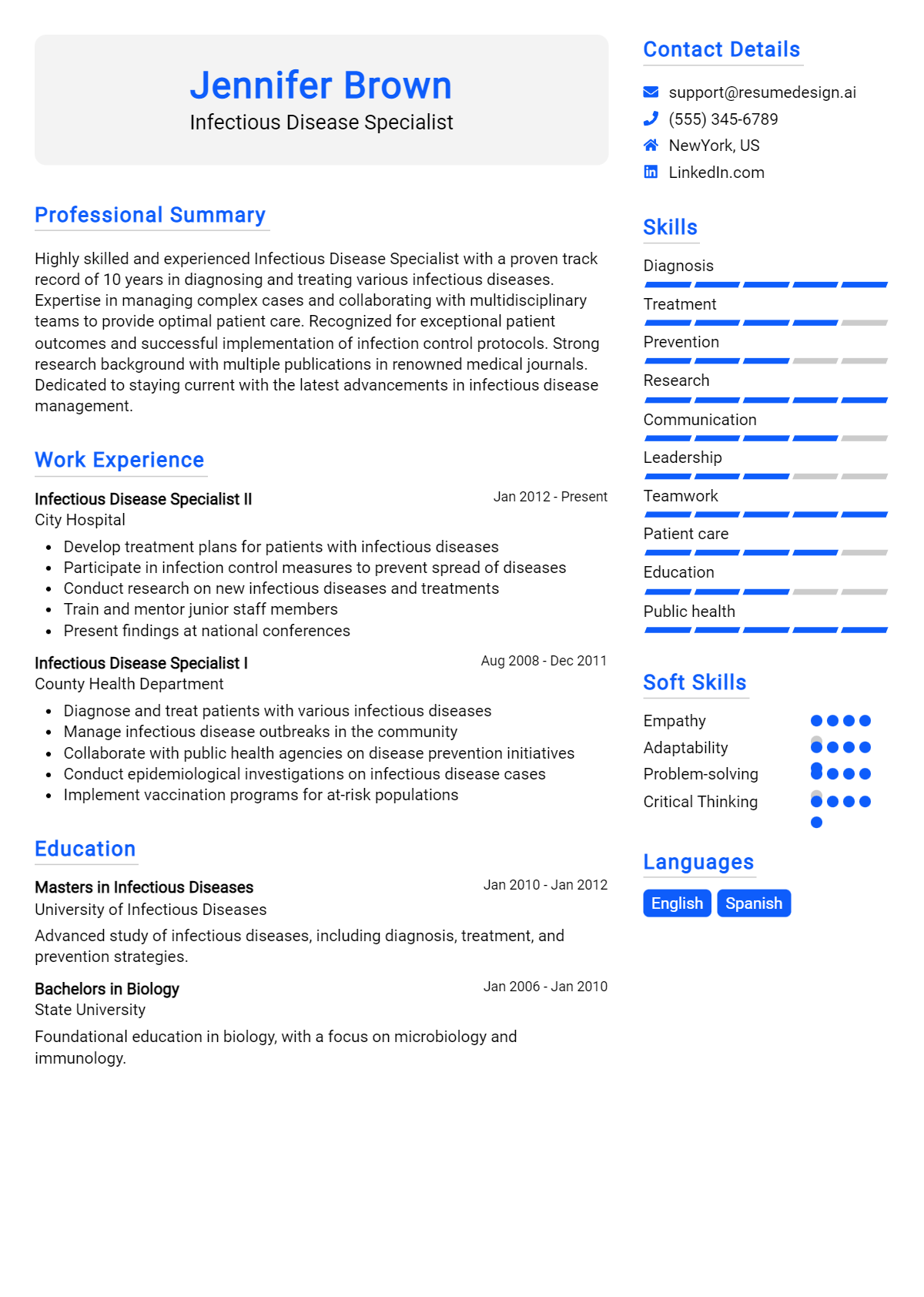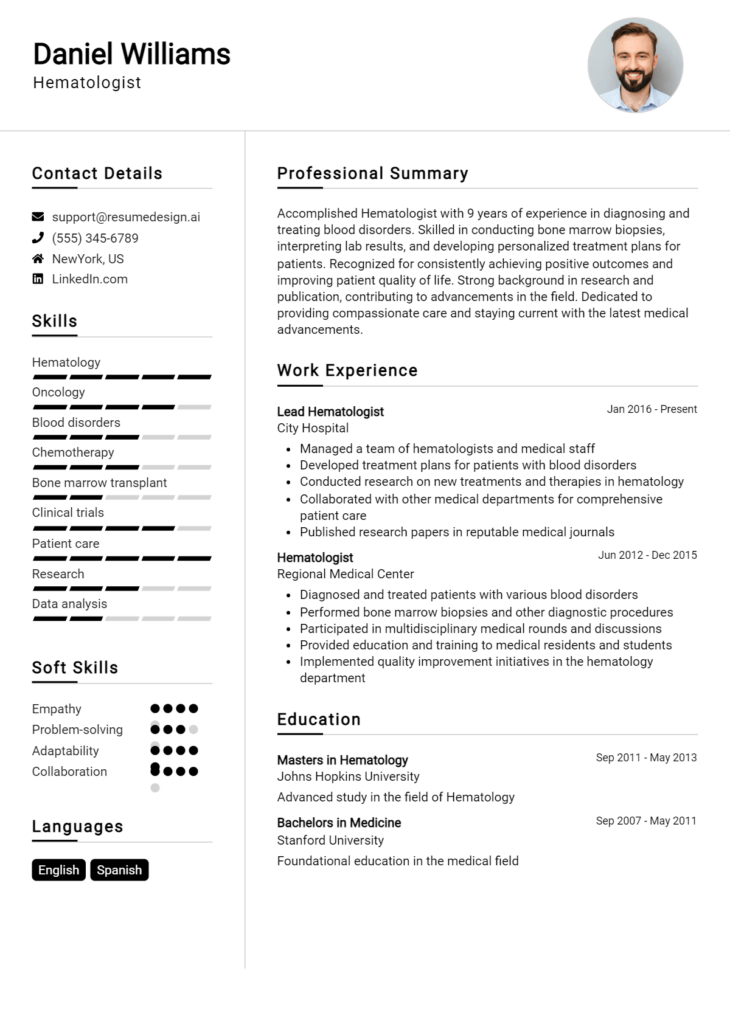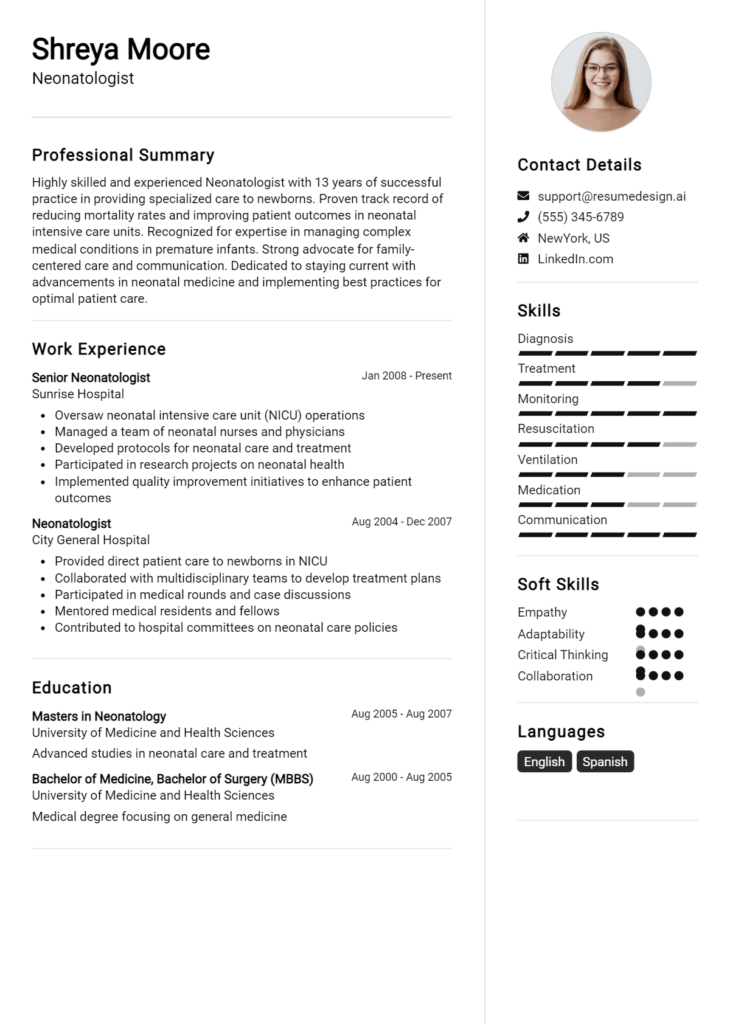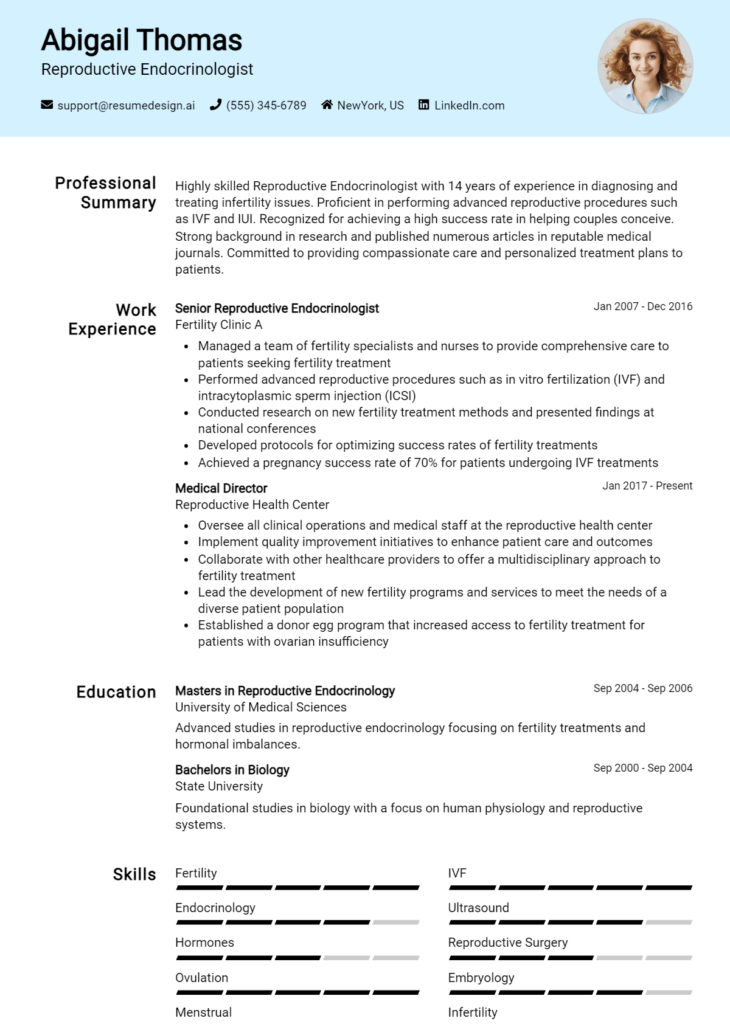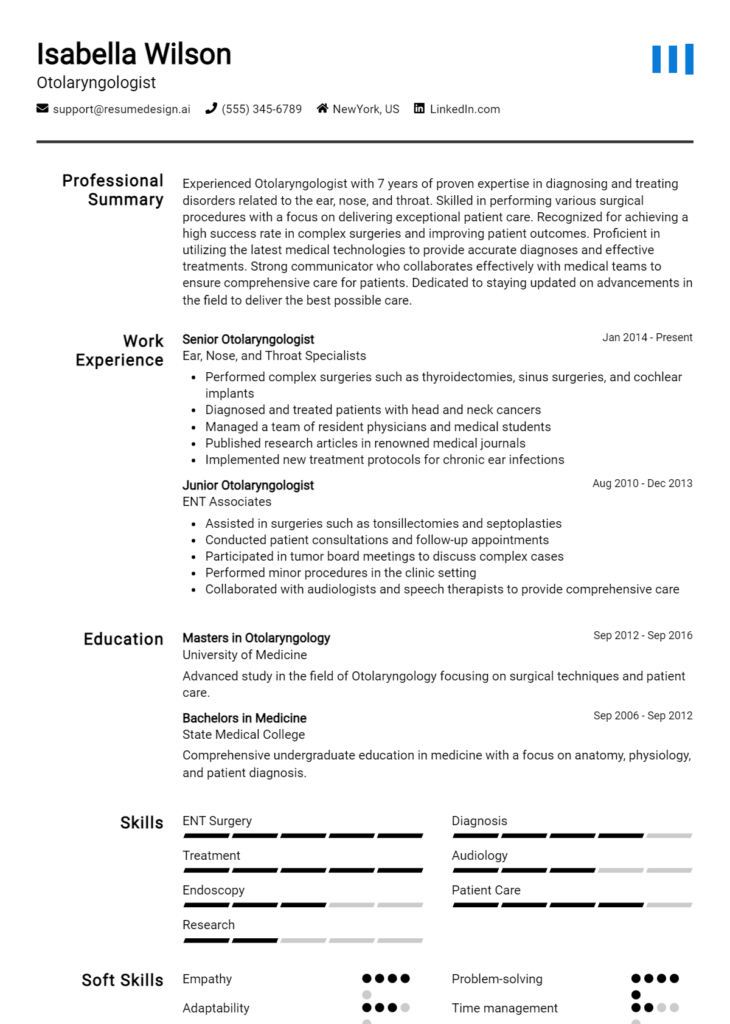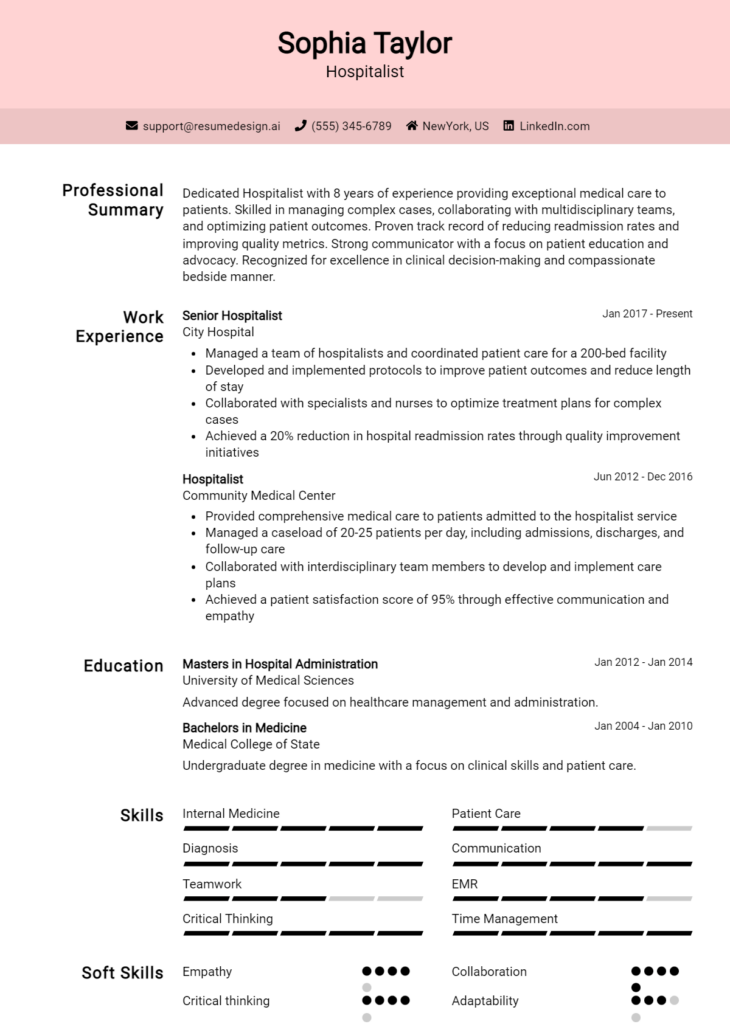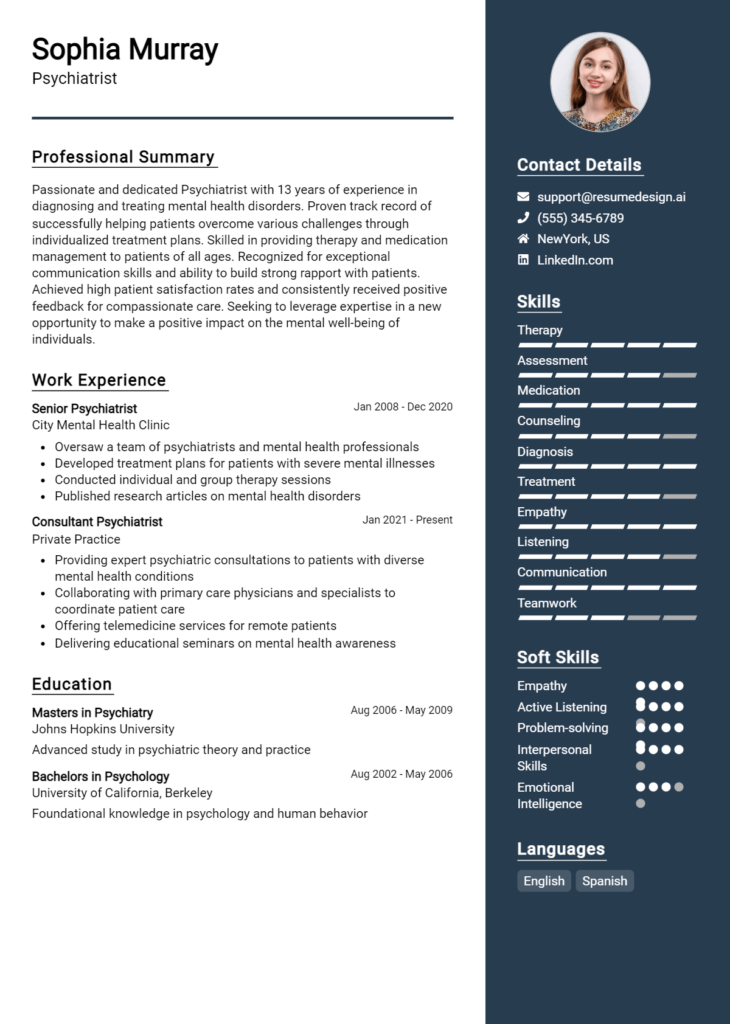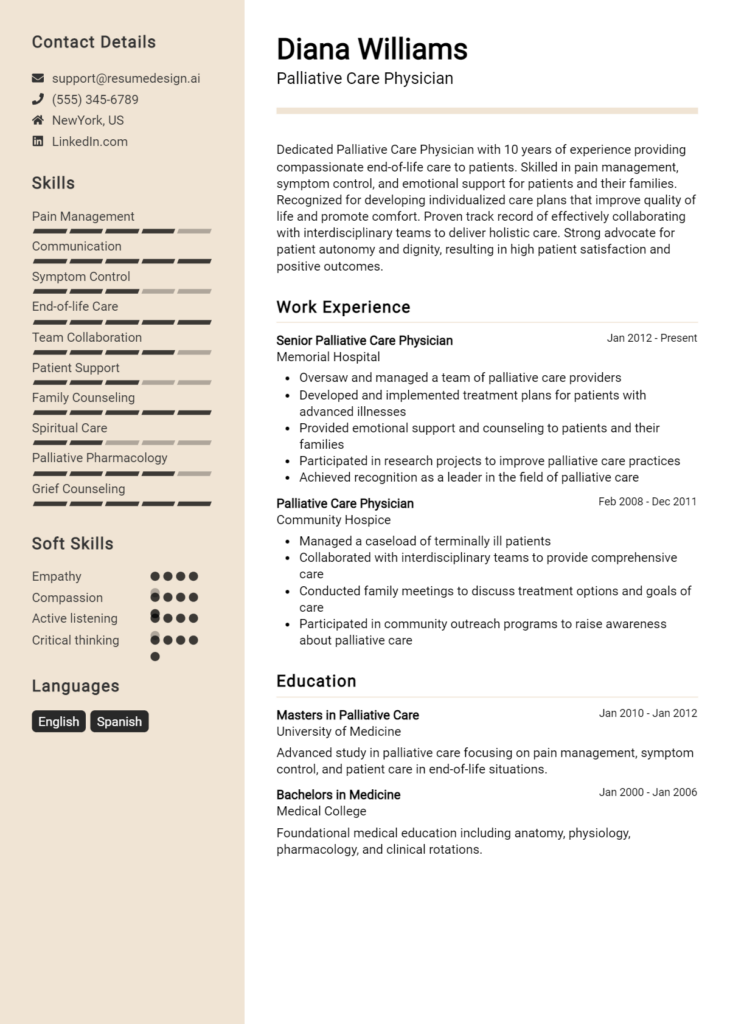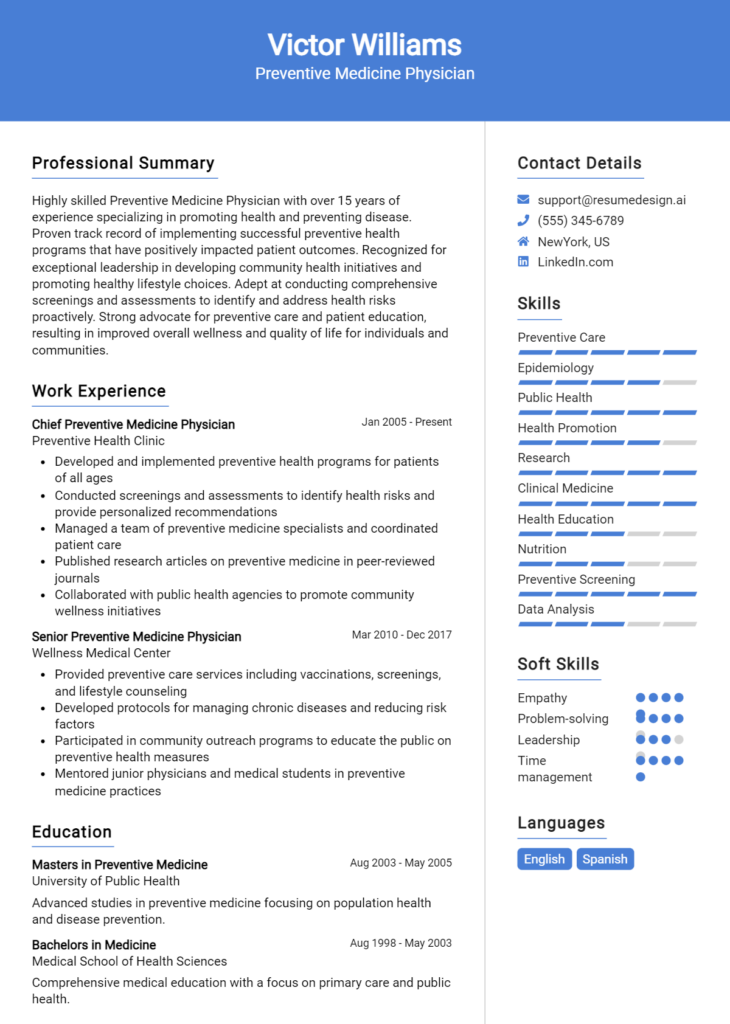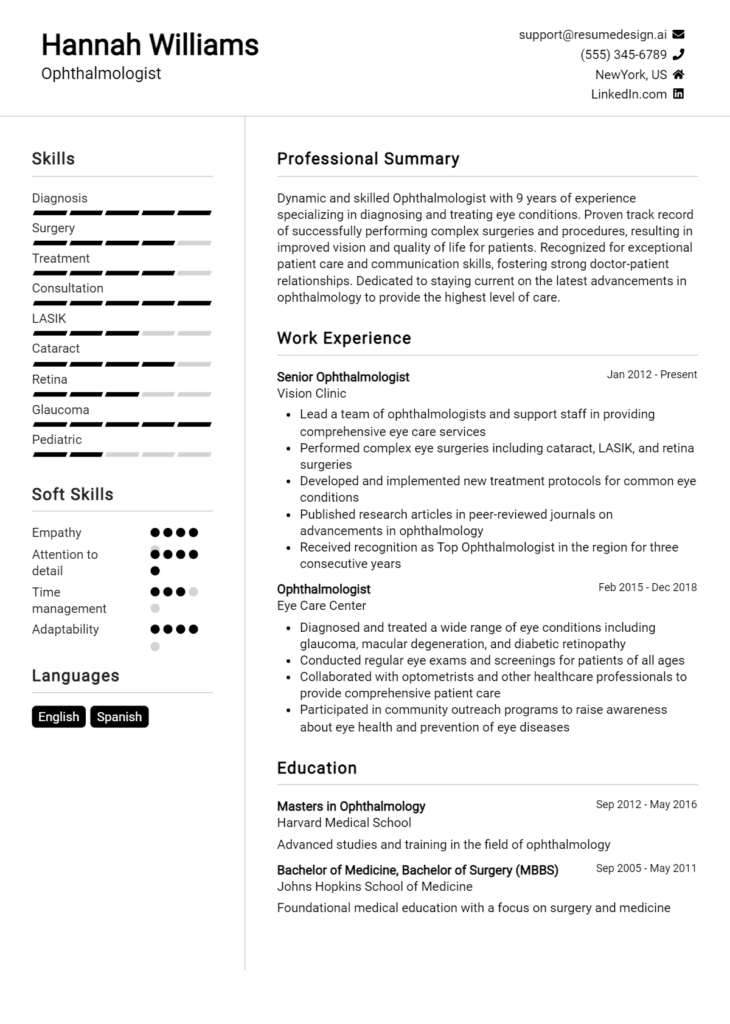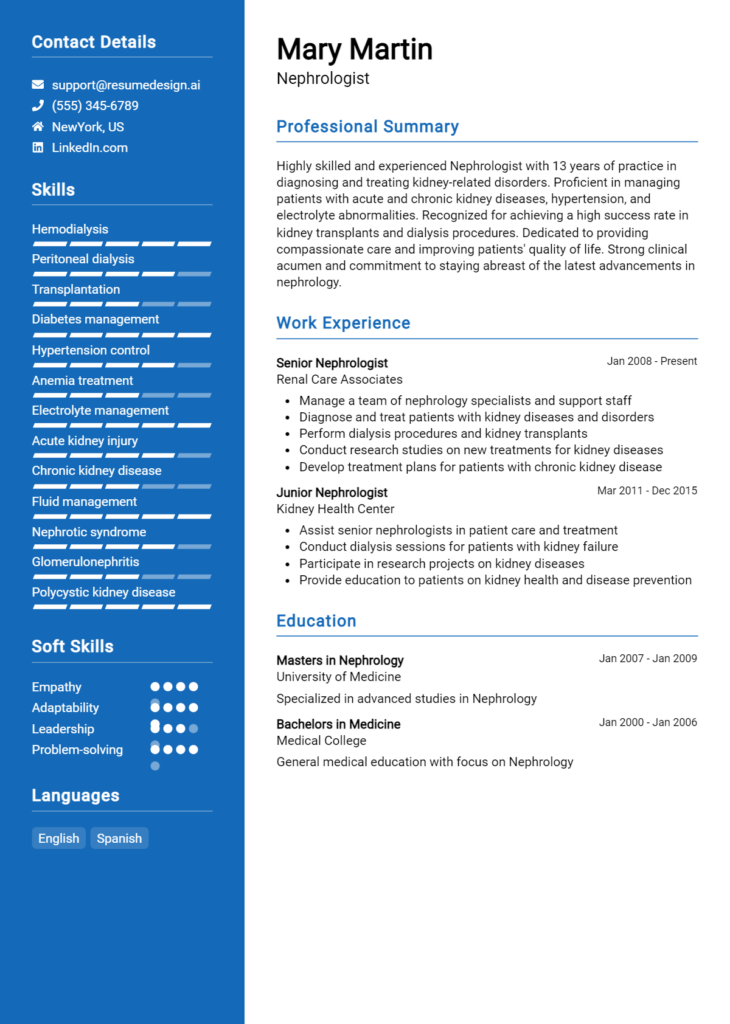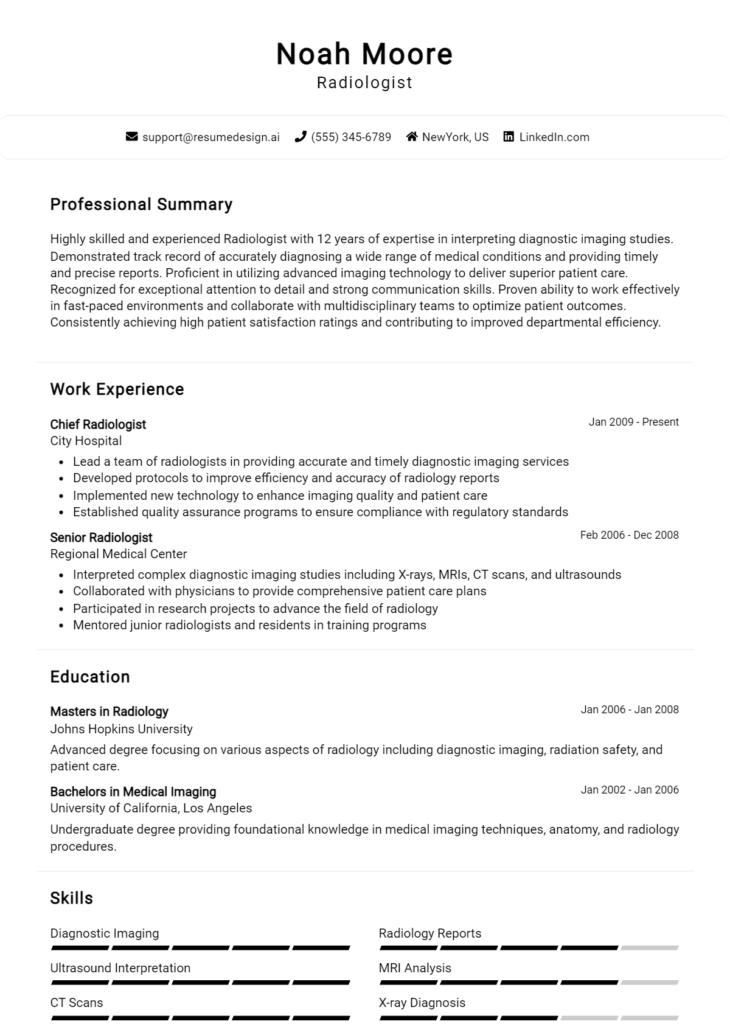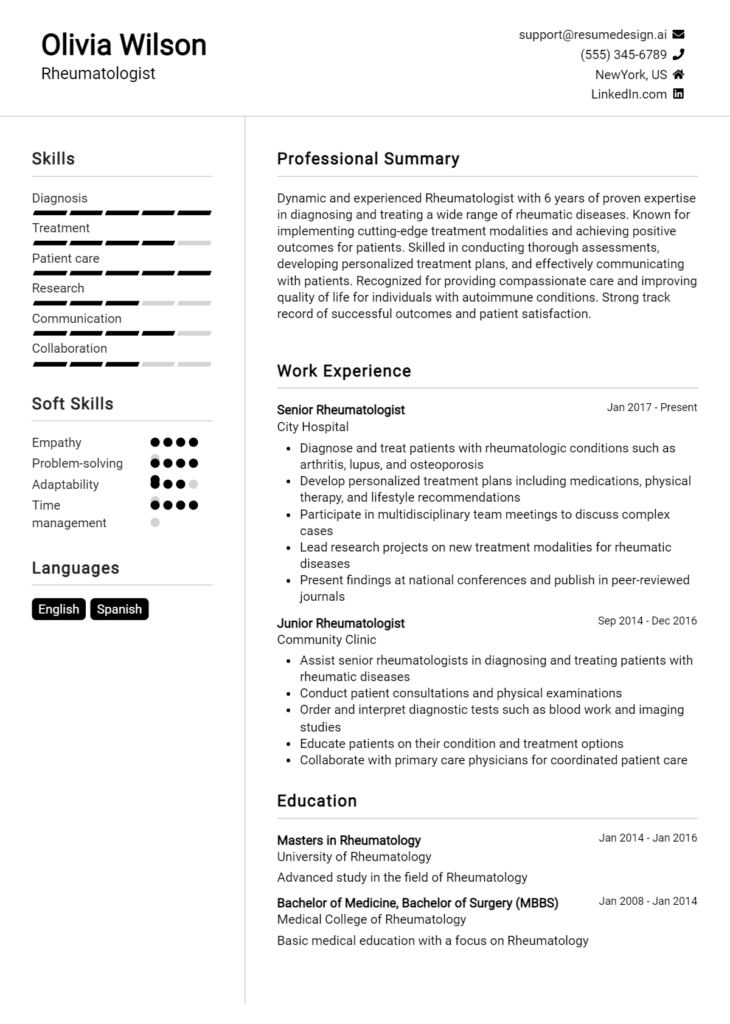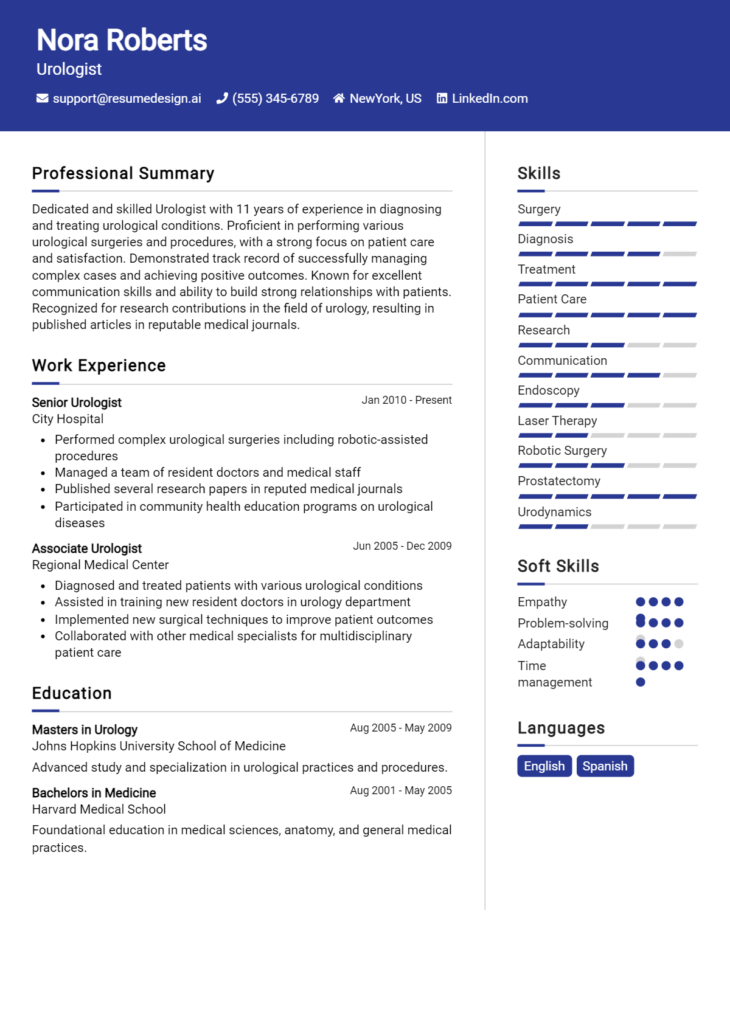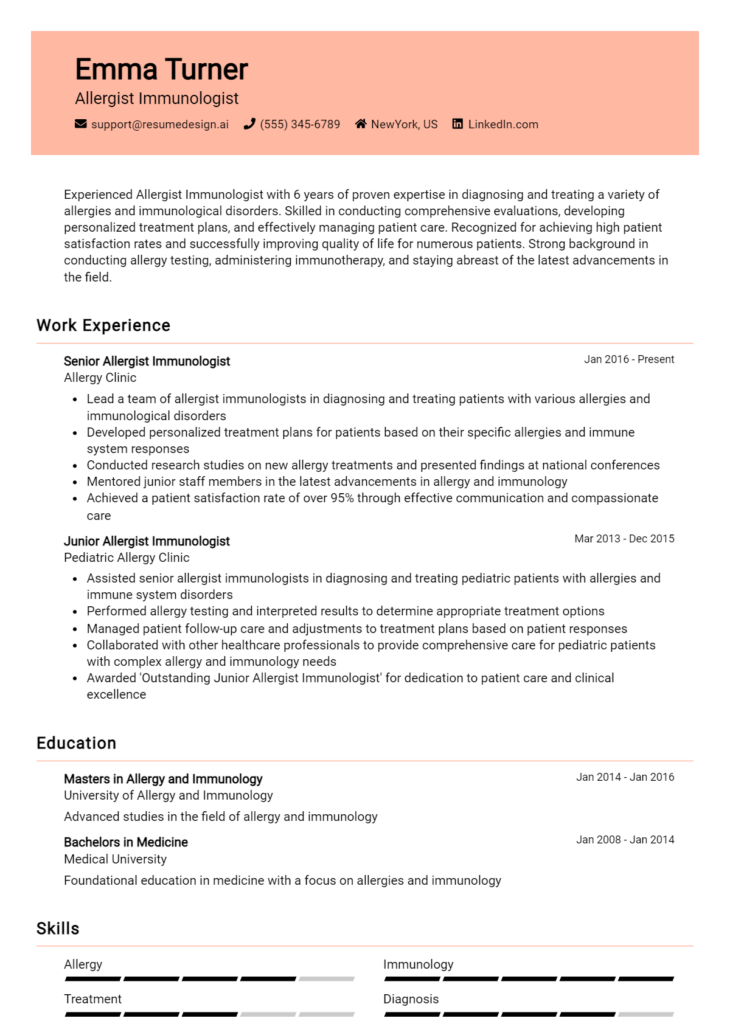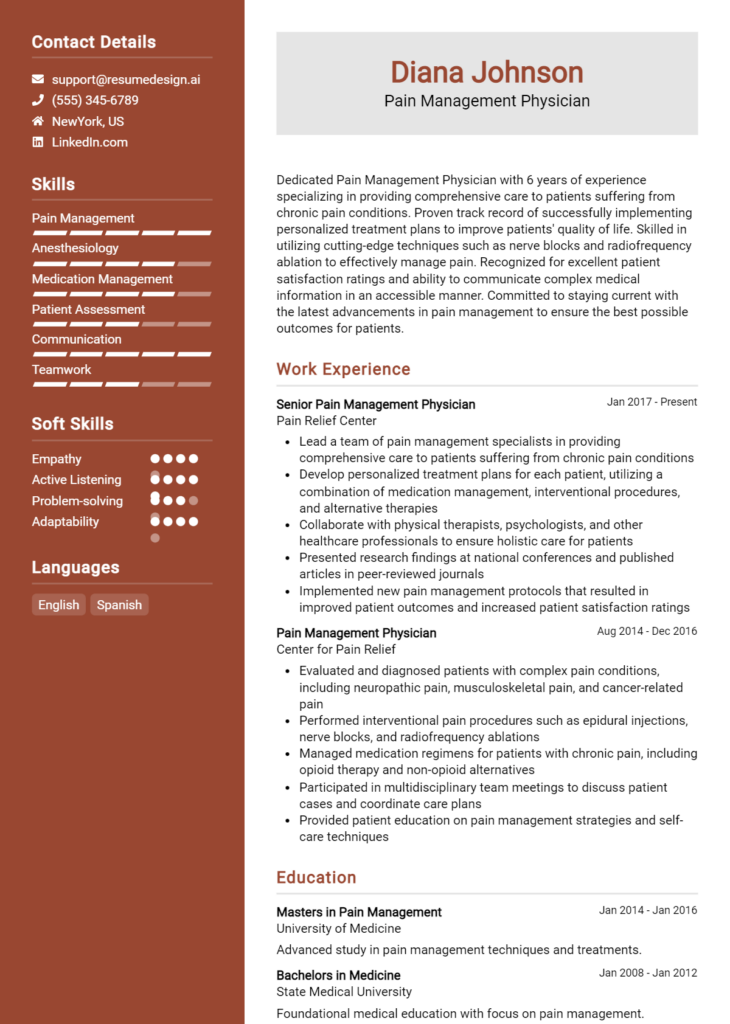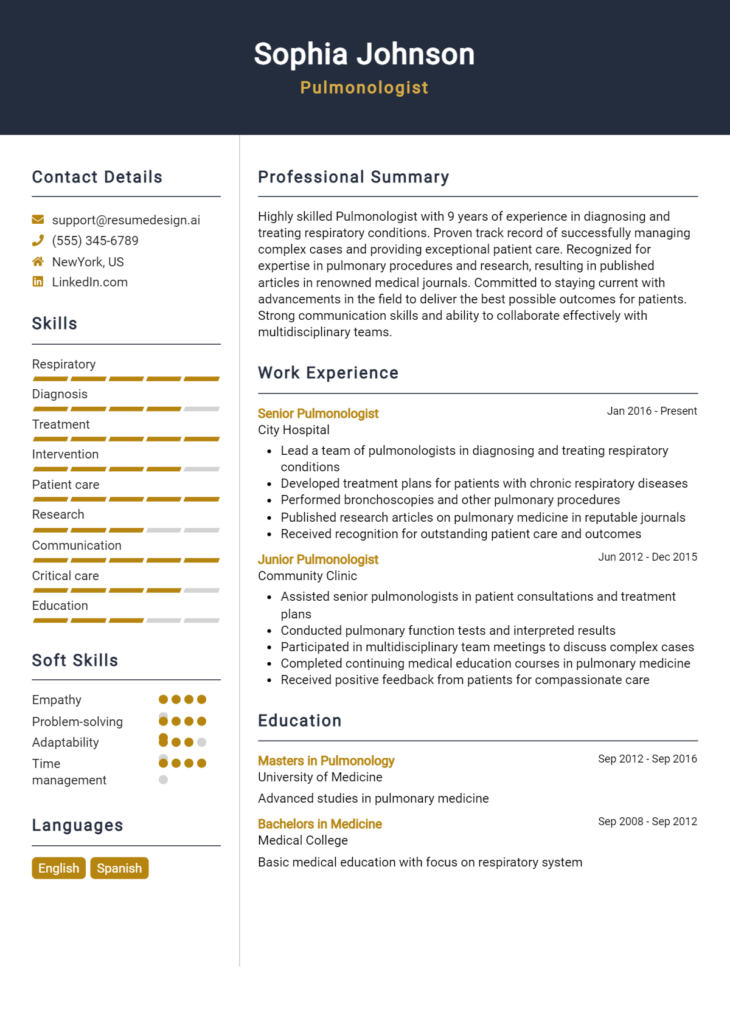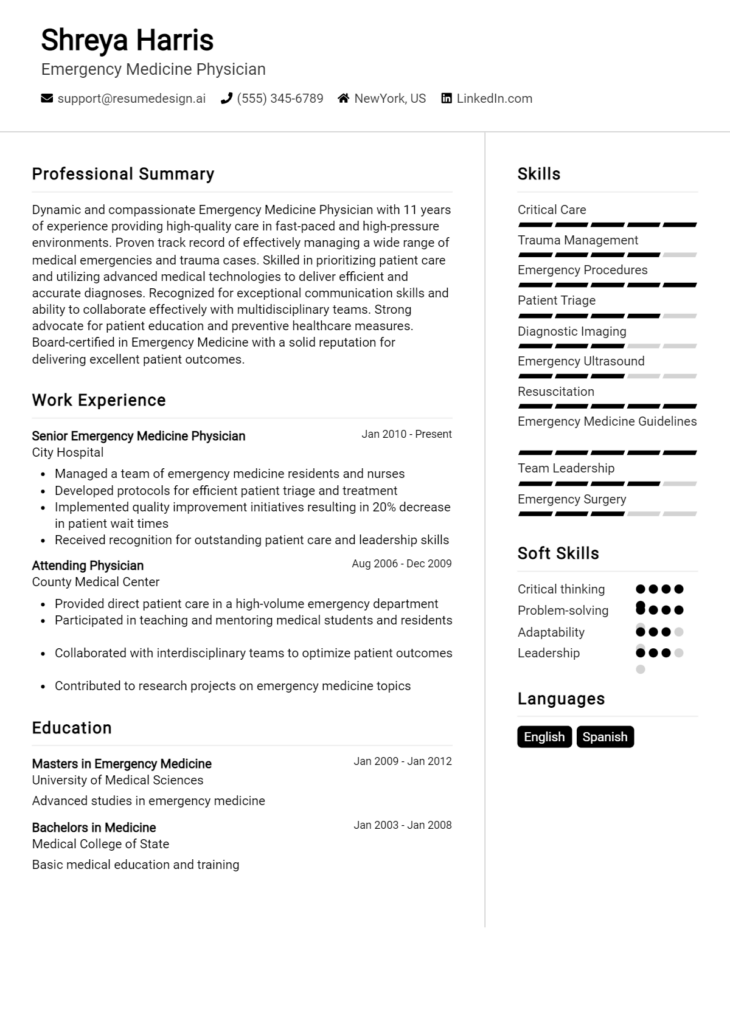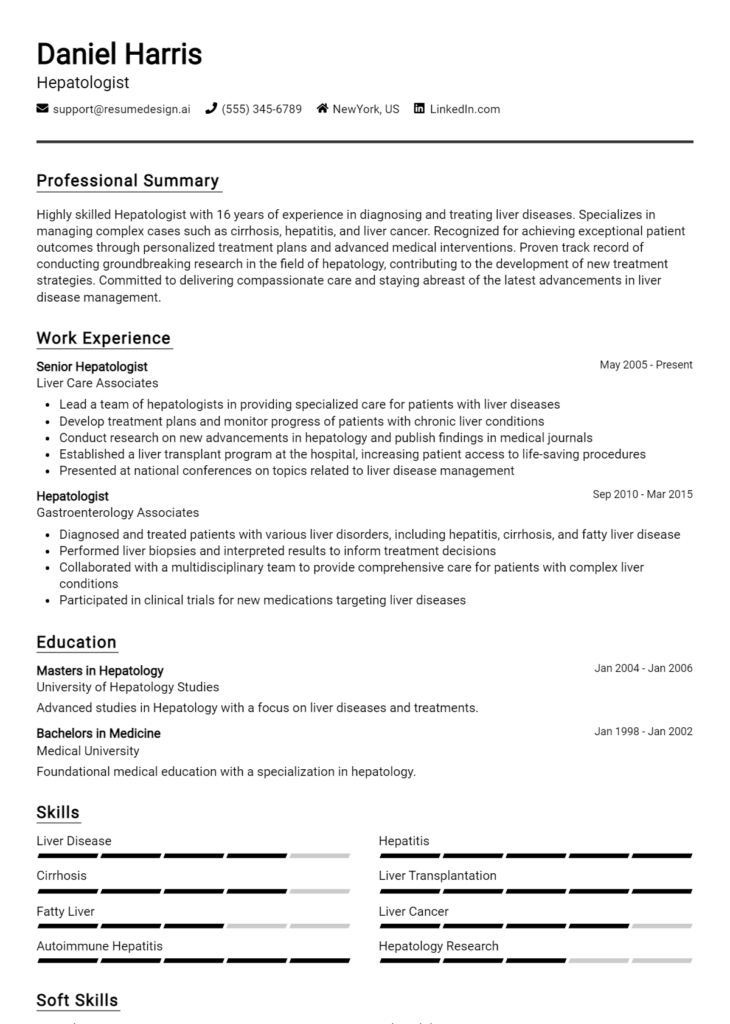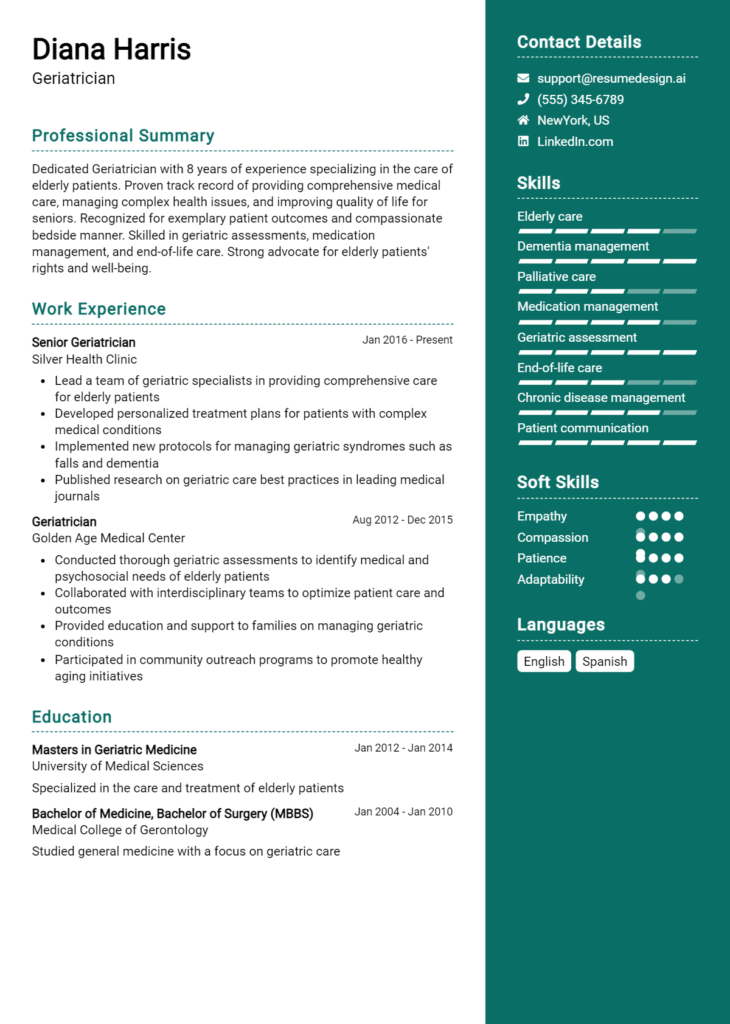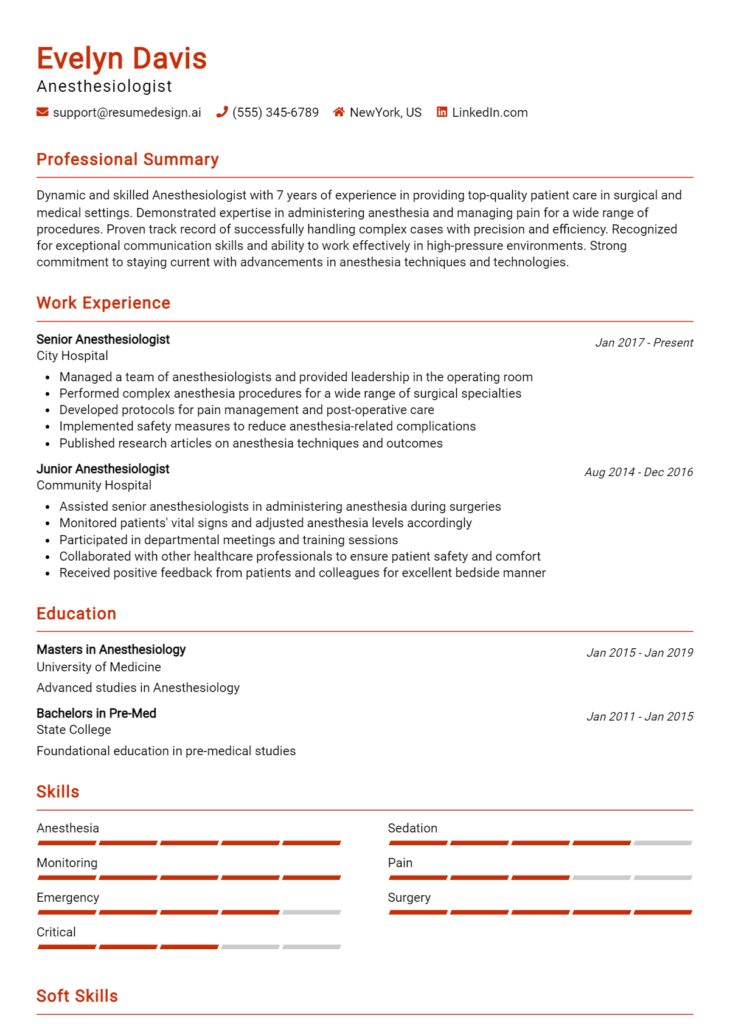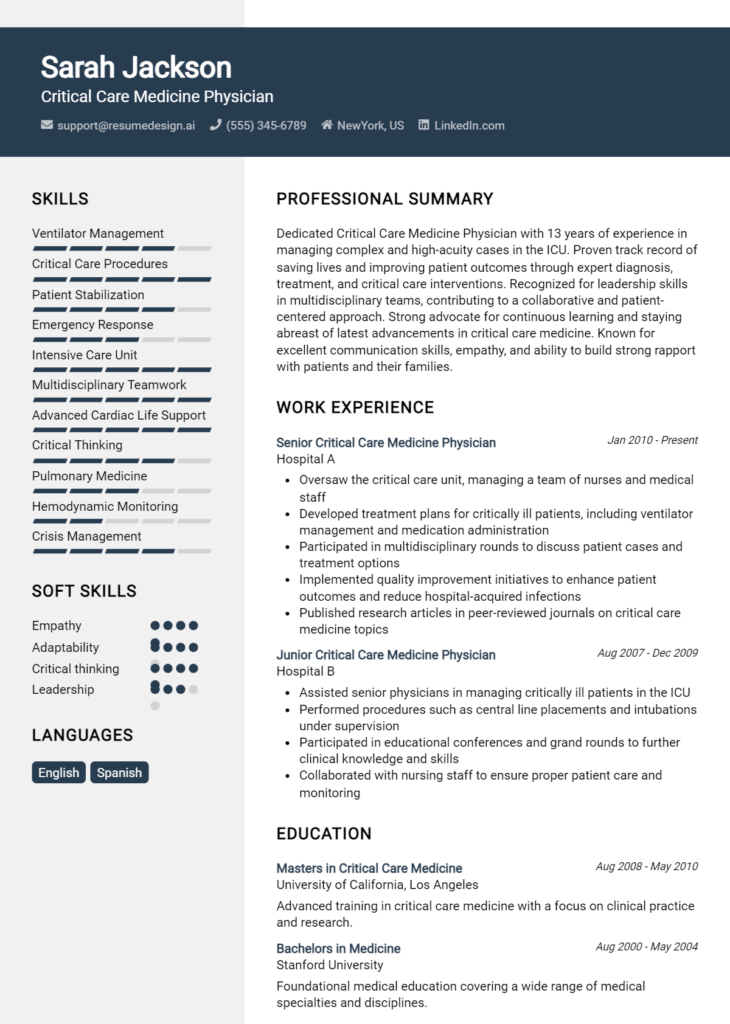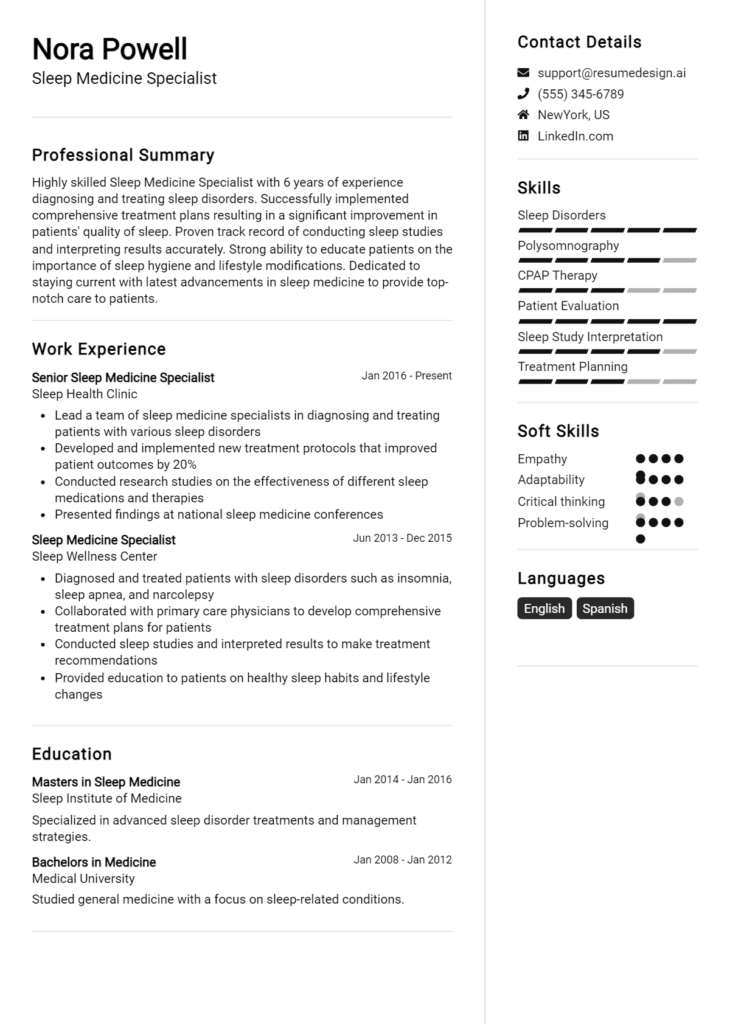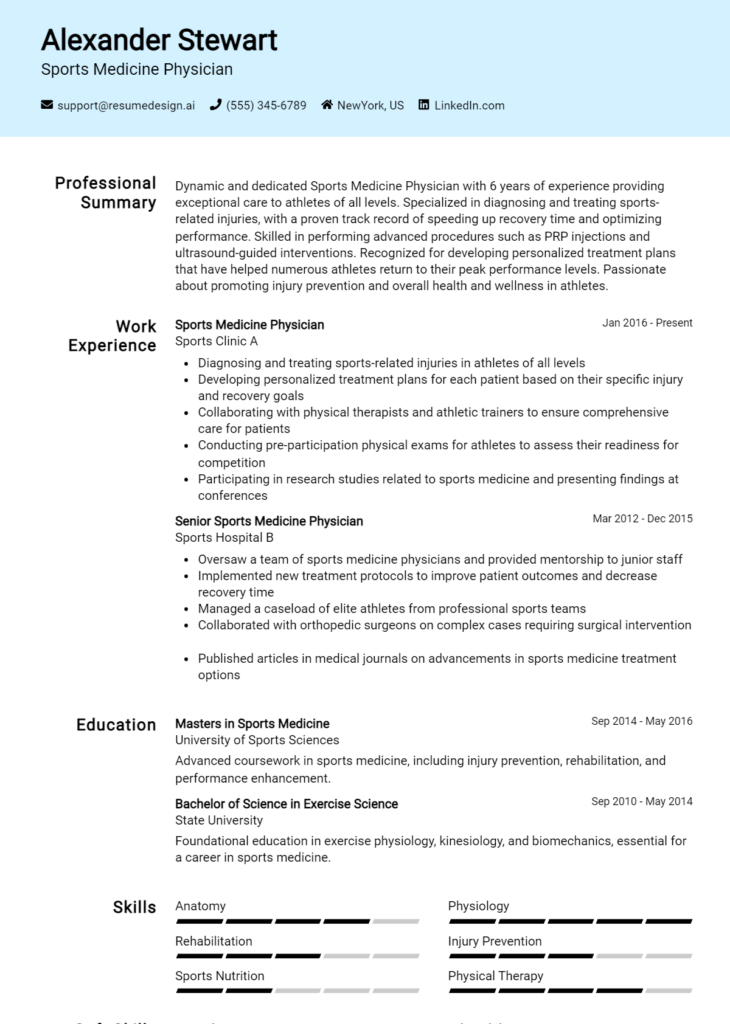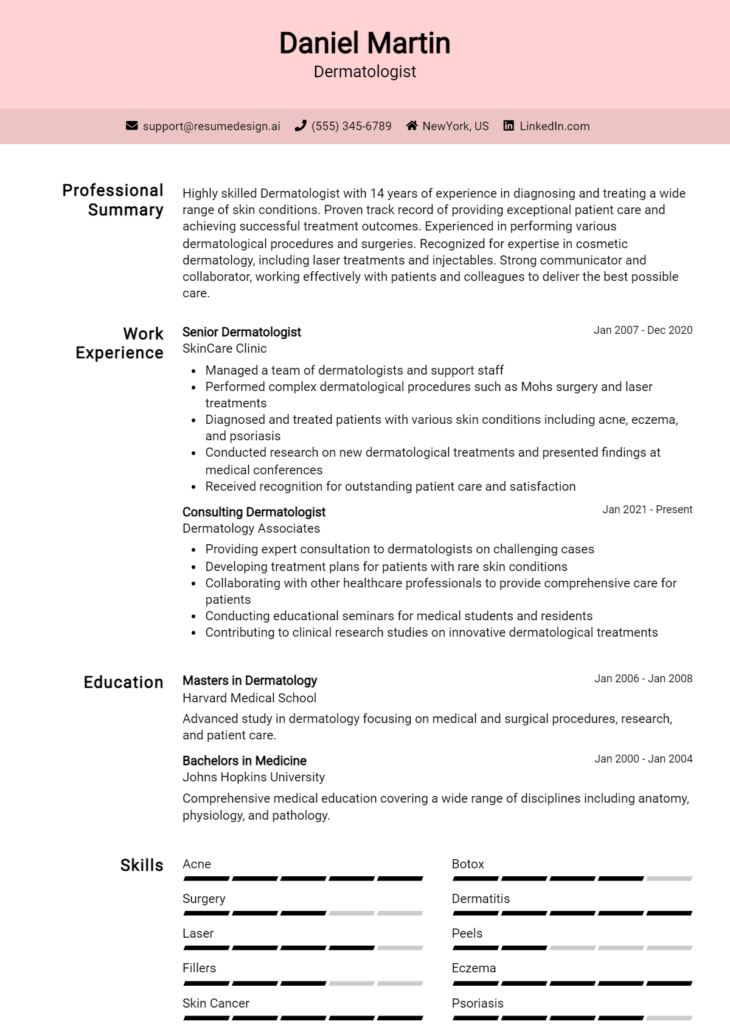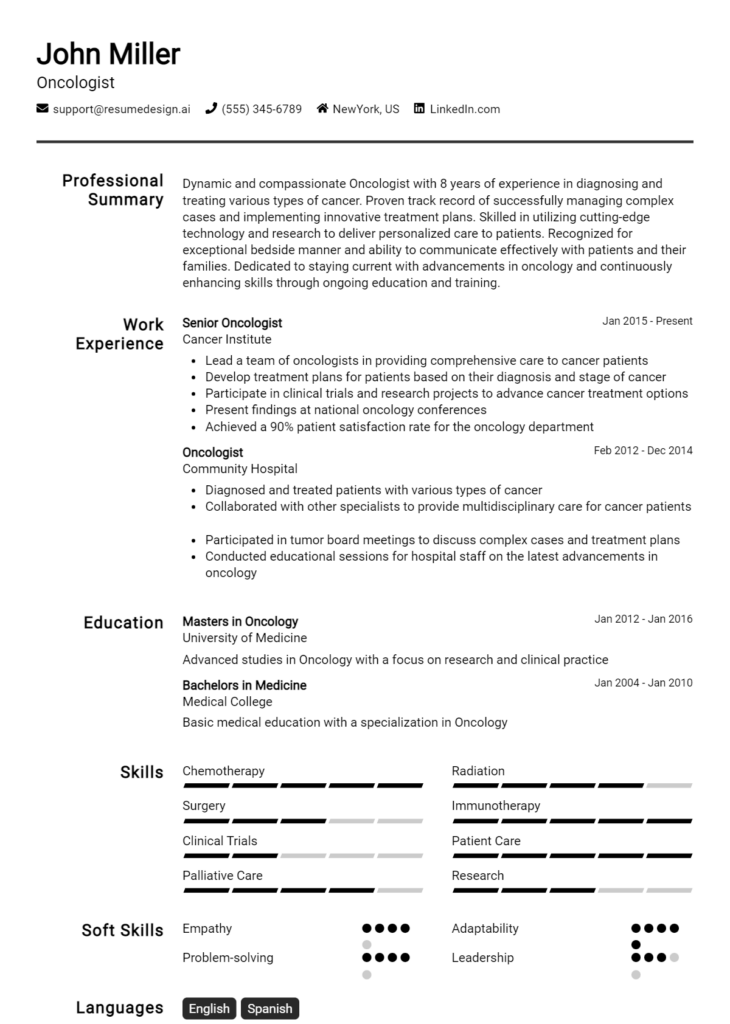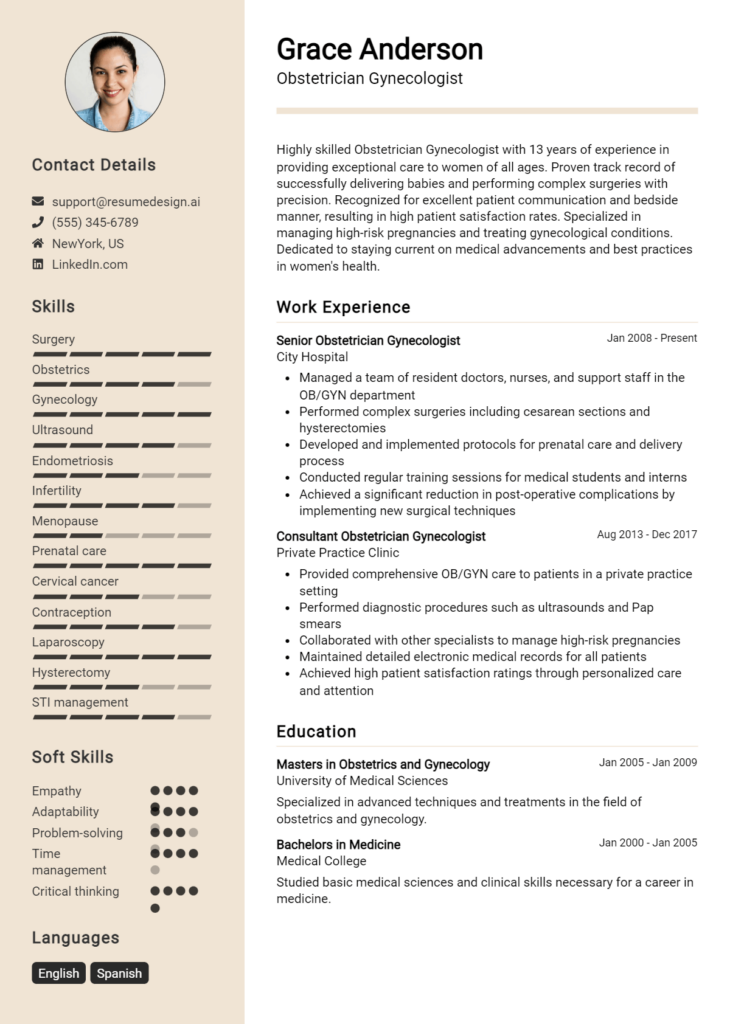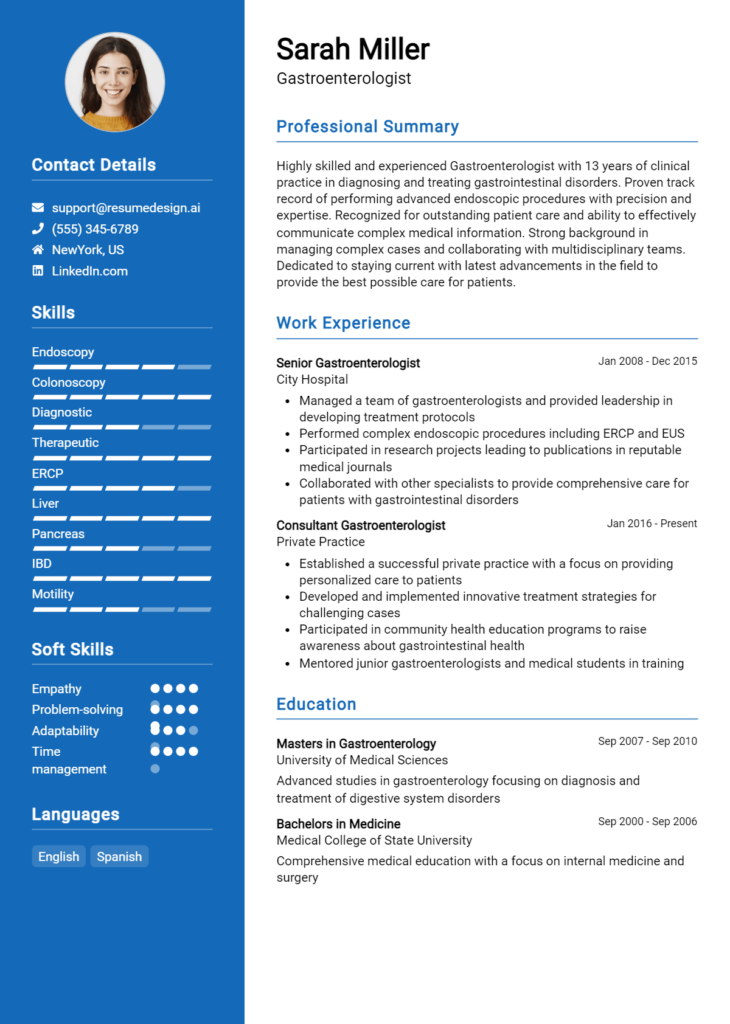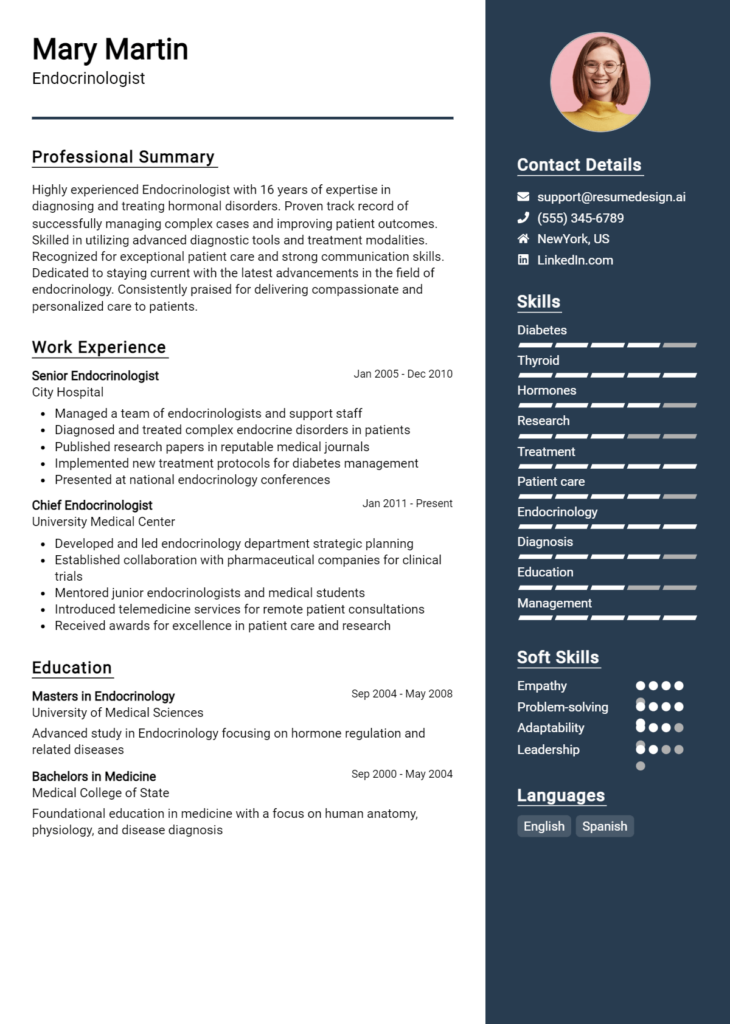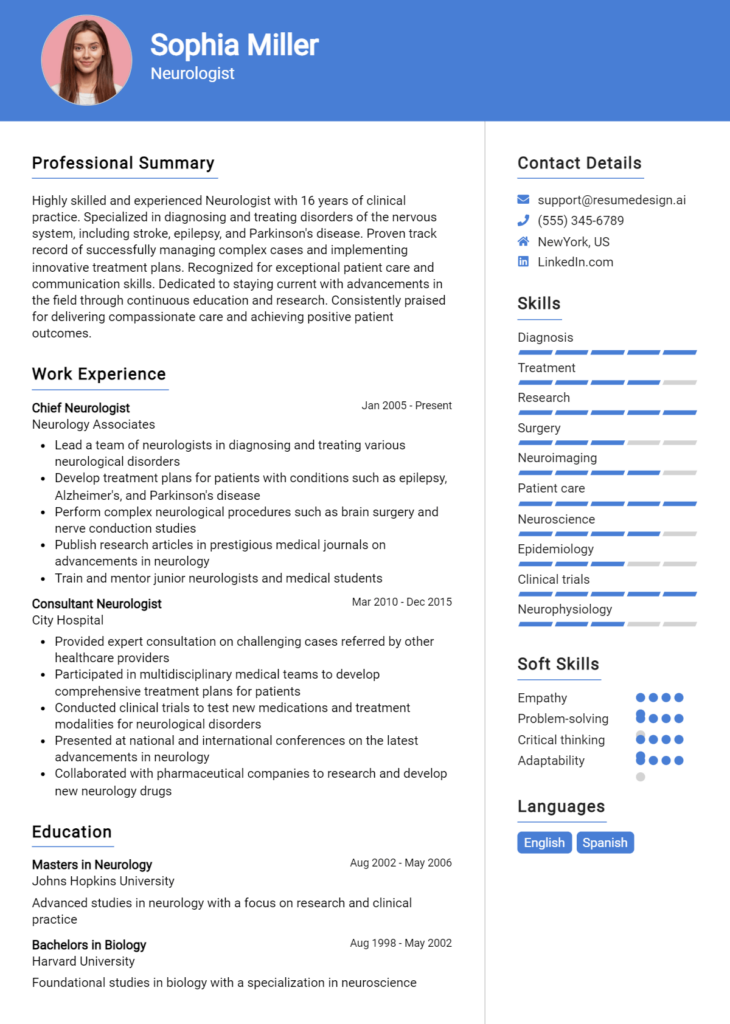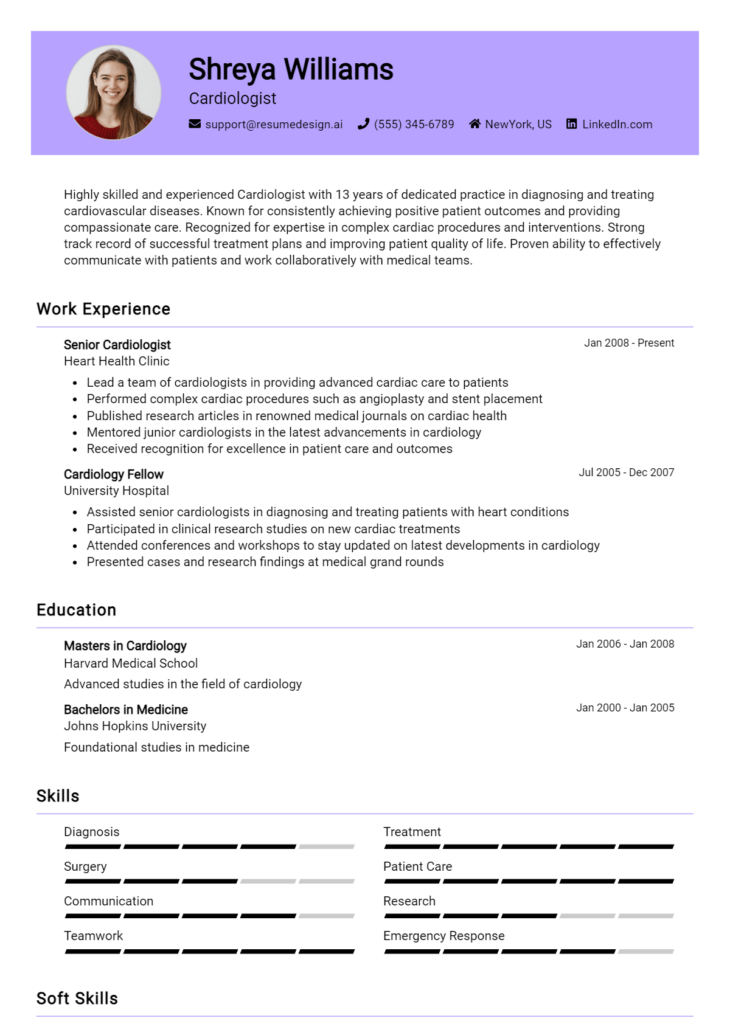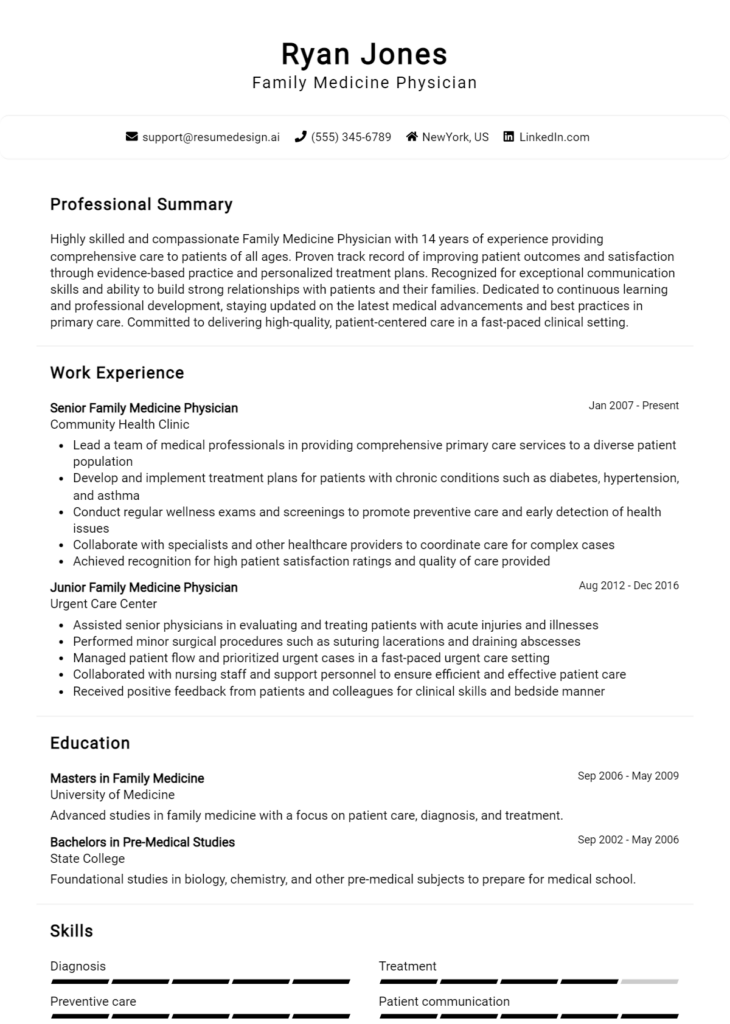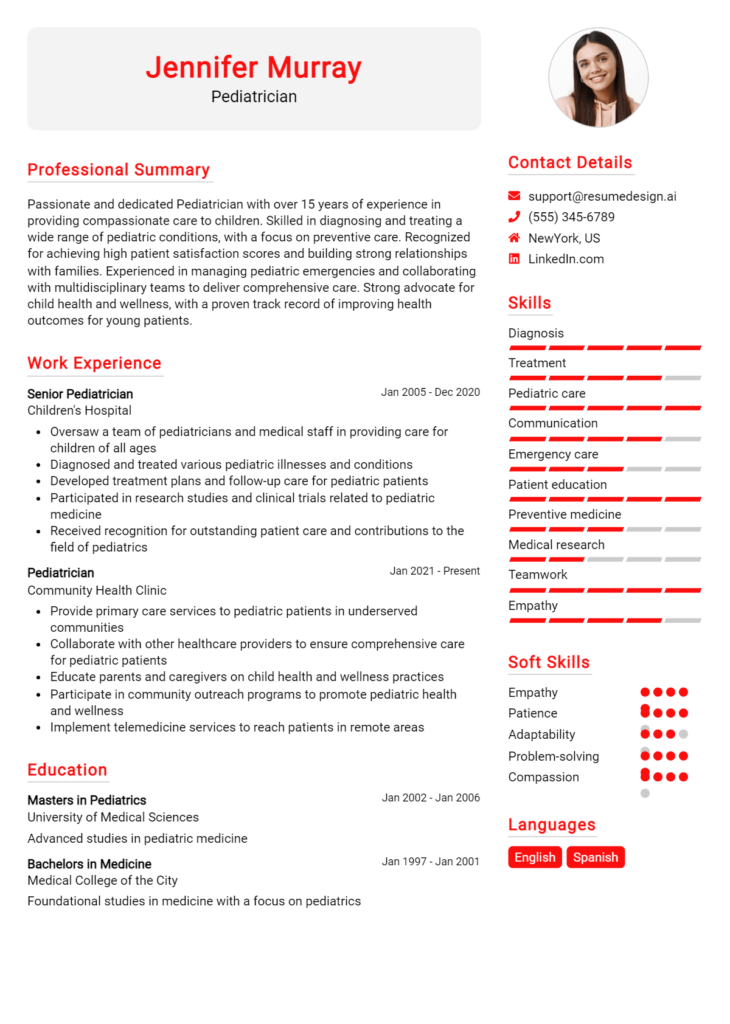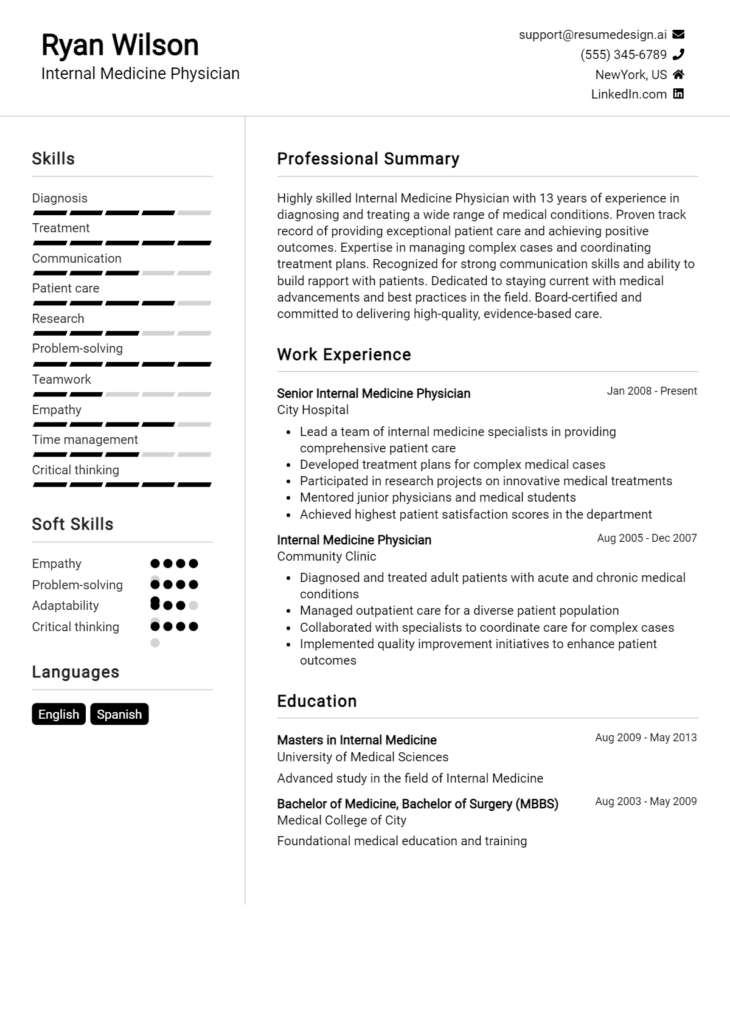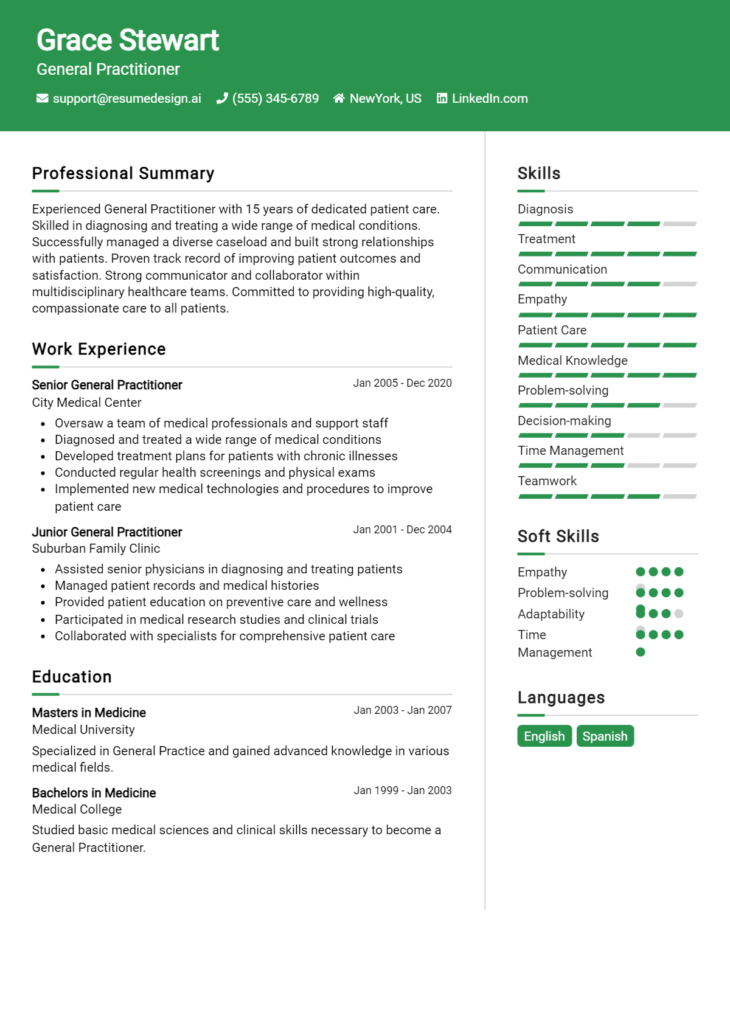Infectious Disease Specialist Core Responsibilities
An Infectious Disease Specialist plays a crucial role in diagnosing and managing infectious diseases, bridging various departments such as public health, microbiology, and clinical care. Key responsibilities include conducting research, developing treatment protocols, and collaborating with healthcare teams to prevent disease outbreaks. Essential skills encompass technical knowledge of pathogens, operational management of healthcare systems, and problem-solving capabilities to address complex medical issues. A well-structured resume effectively highlights these qualifications, demonstrating the specialist's contribution to the organization’s overall goals.
Common Responsibilities Listed on Infectious Disease Specialist Resume
- Diagnosing and treating infectious diseases in patients.
- Conducting research on pathogens and treatment efficacy.
- Collaborating with public health officials to manage disease outbreaks.
- Developing and implementing infection control protocols.
- Educating healthcare staff on infectious disease prevention.
- Participating in clinical trials for new treatments.
- Analyzing laboratory results to guide treatment plans.
- Providing consultations for complex cases.
- Staying updated on emerging infectious diseases and trends.
- Working with epidemiologists to track disease patterns.
High-Level Resume Tips for Infectious Disease Specialist Professionals
For Infectious Disease Specialist professionals, a well-crafted resume is not just a document; it is a vital tool that can open doors to new opportunities. As the first impression a candidate makes on a potential employer, the resume must effectively reflect both the skills and achievements that set them apart in a competitive field. Given the complexities of infectious diseases and the critical role specialists play in public health, a resume should highlight relevant experience and demonstrate a deep understanding of the industry. This guide will provide practical and actionable resume tips specifically tailored for Infectious Disease Specialist professionals, enabling them to present their qualifications in the best possible light.
Top Resume Tips for Infectious Disease Specialist Professionals
- Tailor your resume to the job description by using keywords and phrases that match the requirements of the position.
- Highlight relevant experience in infectious disease research, clinical practice, or public health initiatives to demonstrate expertise.
- Quantify your achievements whenever possible, such as the number of patients treated, research studies published, or percentage of infection reduction.
- Showcase industry-specific skills, such as epidemiology, laboratory techniques, and knowledge of emerging infectious diseases.
- Include any certifications, licenses, or specialized training relevant to infectious diseases to enhance credibility.
- Utilize a clean, professional format that enhances readability and draws attention to key accomplishments.
- Incorporate a summary statement that encapsulates your experience and passion for infectious disease work.
- List professional affiliations with organizations related to infectious diseases, as this demonstrates commitment to the field.
- Consider adding volunteer work or community service related to public health or disease prevention to show a well-rounded background.
- Proofread your resume thoroughly to eliminate any errors or inconsistencies that could detract from your professionalism.
By implementing these tips, Infectious Disease Specialist professionals can significantly increase their chances of landing a job in their field. A targeted and well-structured resume not only highlights qualifications but also reflects the candidate's dedication and expertise, making a compelling case for their candidacy in a highly specialized area of healthcare.
Why Resume Headlines & Titles are Important for Infectious Disease Specialist
In the highly specialized field of infectious disease, a resume headline or title plays a crucial role in capturing the attention of hiring managers. A strong headline can serve as the first impression of a candidate, effectively summarizing their key qualifications and expertise in a concise manner. It sets the tone for the rest of the resume, highlighting relevant experience and skills that directly relate to the position being applied for. A well-crafted headline not only draws interest but also provides a snapshot of what the candidate brings to the table, making it an essential element for anyone looking to stand out in this competitive field.
Best Practices for Crafting Resume Headlines for Infectious Disease Specialist
- Keep it concise: Limit the headline to one impactful phrase that conveys your main strengths.
- Be role-specific: Tailor the headline to reflect the specific position of Infectious Disease Specialist.
- Highlight key qualifications: Focus on your most relevant skills, certifications, or experiences.
- Use powerful language: Choose strong action words and industry-specific terminology to convey expertise.
- Avoid jargon: While industry terms are important, ensure that your headline is easily understandable.
- Incorporate metrics if possible: Quantifiable achievements can enhance the impact of your headline.
- Align with the job description: Use keywords from the job posting to resonate with hiring managers.
- Make it unique: Stand out by showcasing what differentiates you from other candidates.
Example Resume Headlines for Infectious Disease Specialist
Strong Resume Headlines
"Board-Certified Infectious Disease Specialist with 10+ Years in Clinical Research and Patient Care"
“Expert in Epidemiology and Infection Control with Proven Track Record of Reducing Hospital-Acquired Infections”
“Dynamic Infectious Disease Consultant Specializing in Global Health and Disease Prevention Strategies”
Weak Resume Headlines
“Professional with Experience”
“Infectious Disease Specialist Seeking Opportunities”
Strong resume headlines are effective because they immediately convey the candidate's qualifications and specific expertise, making a lasting impression on hiring managers. They utilize impactful language and relevant details that resonate with the job requirements. In contrast, weak headlines lack specificity and fail to differentiate the candidate from others, making them forgettable. By avoiding generalities and focusing on what sets them apart, strong headlines enhance the candidate's chances of being noticed in a competitive job market.
Writing an Exceptional Infectious Disease Specialist Resume Summary
A resume summary is a critical component for an Infectious Disease Specialist, as it serves as the first impression to hiring managers. A well-crafted summary quickly captures attention by succinctly showcasing key skills, relevant experience, and notable accomplishments that align with the specific demands of the role. It provides a snapshot of the candidate's expertise, making it easier for employers to assess their fit for the position. By being concise and impactful, a tailored resume summary can set the tone for the rest of the application, ensuring that the candidate stands out in a competitive job market.
Best Practices for Writing a Infectious Disease Specialist Resume Summary
- Quantify Achievements: Use numbers and statistics to highlight your successes and contributions.
- Focus on Relevant Skills: Emphasize skills that directly relate to infectious disease management and treatment.
- Tailor for the Job Description: Customize your summary based on the specific requirements of the job you’re applying for.
- Be Concise: Limit your summary to 2-4 sentences that are clear and to the point.
- Highlight Key Accomplishments: Mention any significant projects, research, or initiatives you have led or contributed to.
- Use Action Words: Start sentences with strong action verbs to convey confidence and proactivity.
- Showcase Certifications: If applicable, include relevant certifications or training that enhance your qualifications.
- Reflect Professional Growth: Indicate any advancements in your career that demonstrate continuous learning and improvement.
Example Infectious Disease Specialist Resume Summaries
Strong Resume Summaries
Dedicated Infectious Disease Specialist with over 8 years of experience in diagnosing and treating complex infections. Successfully led a team that reduced hospital-acquired infections by 30% through the implementation of rigorous infection control protocols.
Results-driven Infectious Disease Specialist with a proven track record of managing clinical trials that advanced treatment options for HIV patients, achieving a 25% improvement in patient adherence to therapy regimens.
Board-certified Infectious Disease Specialist with expertise in epidemiology and public health. Instrumental in developing a community outreach program that increased vaccination rates by 40% in underserved populations.
Weak Resume Summaries
Infectious Disease Specialist with experience in various medical settings. I have a deep understanding of diseases.
Dedicated healthcare professional with a focus on infectious diseases. I am passionate about my work and strive to help patients.
The examples provided illustrate the differences between strong and weak resume summaries. The strong summaries are effective because they include specific achievements and quantifiable results, giving employers a clear understanding of the candidate's impact and expertise. In contrast, the weak summaries lack detail and specificity, making it difficult for hiring managers to gauge the candidate’s qualifications or how they can contribute to the organization.
Work Experience Section for Infectious Disease Specialist Resume
The work experience section of an Infectious Disease Specialist resume is crucial as it serves as a comprehensive showcase of the candidate's technical skills, leadership capabilities, and commitment to delivering high-quality patient care and research outcomes. This section not only highlights the candidate’s ability to manage teams effectively but also emphasizes their experience in addressing complex infectious disease challenges. By quantifying achievements and aligning experiences with industry standards, candidates can significantly bolster their application and demonstrate their value to potential employers.
Best Practices for Infectious Disease Specialist Work Experience
- Clearly outline specific technical skills relevant to infectious disease management, including laboratory techniques and diagnostic methodologies.
- Quantify achievements using metrics such as the number of patients treated, improvement in infection rates, or successful outcomes from clinical trials.
- Highlight collaborative efforts with multidisciplinary teams, showcasing the ability to work effectively with healthcare professionals, researchers, and public health officials.
- Use action verbs to describe responsibilities and achievements, providing a dynamic portrayal of past roles.
- Align experiences with current industry standards and guidelines to demonstrate up-to-date knowledge and practices.
- Include relevant certifications, training, or continuing education that complements work experience.
- Focus on outcomes that illustrate problem-solving abilities and innovations in treatment or prevention strategies.
- Tailor the work experience section to the specific position by emphasizing the most relevant experiences and skills.
Example Work Experiences for Infectious Disease Specialist
Strong Experiences
- Led a multidisciplinary team in a clinical trial for a novel antiviral treatment, resulting in a 30% increase in patient recovery rates over a six-month period.
- Implemented a new infection control protocol that reduced hospital-acquired infections by 25%, significantly improving patient safety and satisfaction scores.
- Collaborated with local health departments to develop a community outreach program, increasing vaccination rates by 40% in underserved populations.
- Directed a research project that identified a new strain of antibiotic-resistant bacteria, leading to a published study in a peer-reviewed journal.
Weak Experiences
- Worked on various projects related to infectious diseases.
- Assisted in patient care and helped with paperwork.
- Participated in team meetings and contributed ideas.
- Involved in research activities with little detail on results.
The examples are considered strong due to their specificity and quantitative results, showcasing the candidate's direct impact on patient outcomes and team leadership. In contrast, the weak experiences lack detail, quantifiable achievements, and clear contributions, making it difficult for potential employers to gauge the candidate's true capabilities and effectiveness in their role as an Infectious Disease Specialist.
Education and Certifications Section for Infectious Disease Specialist Resume
The education and certifications section of an Infectious Disease Specialist resume is crucial in establishing the candidate's academic qualifications and professional credibility. This section not only showcases the foundational knowledge acquired through formal education but also highlights relevant certifications and specialized training that reflect the candidate's commitment to continuous learning in a rapidly evolving field. By providing detailed information about relevant coursework, certifications, and other educational achievements, candidates can significantly enhance their credibility and demonstrate their alignment with the specific requirements of the job role, making them more attractive to potential employers.
Best Practices for Infectious Disease Specialist Education and Certifications
- Include only relevant degrees and certifications that pertain to infectious diseases.
- Detail advanced degrees (e.g., MD, PhD, MPH) and any specialized training in infectious disease.
- List industry-recognized certifications, such as those from the American Board of Internal Medicine (ABIM) or the Infectious Diseases Society of America (IDSA).
- Highlight relevant coursework that demonstrates specialized knowledge in virology, microbiology, epidemiology, and public health.
- Maintain clarity and conciseness; format the section for easy readability.
- Include dates of completion for degrees and certifications to showcase ongoing professional development.
- Consider adding memberships in professional organizations relevant to infectious disease.
- Emphasize any continuing education credits or workshops attended that are applicable to the role.
Example Education and Certifications for Infectious Disease Specialist
Strong Examples
- Doctor of Medicine (MD) from Johns Hopkins University School of Medicine, 2015
- Board Certified in Infectious Disease, American Board of Internal Medicine, 2018
- Master of Public Health (MPH) with a focus on Epidemiology, Harvard T.H. Chan School of Public Health, 2017
- Certificate in Antimicrobial Stewardship from the Society for Healthcare Epidemiology of America, 2021
Weak Examples
- Bachelor's Degree in Business Administration, University of California, 2010
- Certification in Basic Life Support (BLS) only.
- High School Diploma, 2006
- Outdated certification in General Practice Medicine, expired 2019
The strong examples are considered effective because they directly relate to the role of an Infectious Disease Specialist, showcasing advanced education and relevant certifications that indicate a high level of expertise in the field. In contrast, the weak examples fail to demonstrate a relevant educational background or specialized training, making them less applicable to the position and diminishing the candidate's perceived qualifications.
Top Skills & Keywords for Infectious Disease Specialist Resume
As an Infectious Disease Specialist, possessing the right skills is crucial for success in a field that constantly evolves due to emerging pathogens and changing healthcare landscapes. A well-crafted resume that highlights both hard and soft skills can set you apart from other candidates, showcasing your expertise and ability to navigate complex medical challenges. The combination of technical knowledge and interpersonal abilities is essential not only for diagnosing and treating infectious diseases but also for collaborating with healthcare teams and educating patients about prevention and care. To help you create a standout resume, here are the top hard and soft skills that are essential for this role.
Top Hard & Soft Skills for Infectious Disease Specialist
Soft Skills
- Communication Skills
- Empathy
- Problem-Solving
- Team Collaboration
- Critical Thinking
- Adaptability
- Attention to Detail
- Time Management
- Leadership
- Patient Education
- Cultural Competence
- Emotional Intelligence
- Conflict Resolution
- Interpersonal Skills
- Decision-Making
- Advocacy
Hard Skills
- Clinical Expertise in Infectious Diseases
- Knowledge of Epidemiology
- Laboratory Skills
- Data Analysis
- Knowledge of Vaccination Protocols
- Familiarity with Infectious Disease Guidelines
- Research Skills
- Familiarity with Public Health Policies
- Diagnostic Testing Proficiency
- Patient Management
- Statistical Software Proficiency
- Experience with Infection Control Practices
- Knowledge of Antimicrobial Stewardship
- Proficiency in Electronic Health Records (EHR)
- Travel Medicine Expertise
- Experience in Global Health Initiatives
By emphasizing these skills in your resume, you can effectively demonstrate your qualifications and readiness to tackle the challenges that come with being an Infectious Disease Specialist. Additionally, ensure that your work experience reflects how you have applied these skills in real-world scenarios, further solidifying your candidacy for this critical role.
Stand Out with a Winning Infectious Disease Specialist Cover Letter
Dear Hiring Manager,
I am writing to express my interest in the Infectious Disease Specialist position at [Company/Organization Name], as advertised on [where you found the job listing]. With a robust background in infectious diseases, combined with my commitment to advancing public health through research, education, and direct patient care, I am excited about the opportunity to contribute to your esteemed team. My experience in diagnosing and managing infectious diseases, along with my dedication to staying at the forefront of medical advancements, aligns perfectly with the goals of your institution.
During my tenure at [Previous Employer/Institution], I successfully managed a diverse patient population, developing tailored treatment plans and implementing preventive measures against infectious outbreaks. My work involved collaborating with multidisciplinary teams to enhance patient outcomes, conducting epidemiological research, and educating both healthcare professionals and the public about best practices in infection control. I have also been actively involved in clinical trials, which has further honed my skills in data analysis and critical thinking—essential qualities for an Infectious Disease Specialist.
In addition to my clinical expertise, I am passionate about utilizing innovative approaches to tackle public health challenges. I have led community outreach programs aimed at increasing awareness of infectious diseases and vaccination initiatives, significantly improving participation rates in underserved populations. My strong communication skills and ability to engage with diverse stakeholders have been instrumental in fostering collaborative efforts to combat infectious disease threats effectively.
I am eager to bring my expertise and enthusiasm for infectious disease management to [Company/Organization Name]. I am confident that my background and approach will make a meaningful contribution to your team and the communities you serve. I look forward to the opportunity to discuss my candidacy further and explore how I can support your mission in advancing public health.
Sincerely,
[Your Name]
[Your Contact Information]
[LinkedIn Profile or Professional Website, if applicable]
Common Mistakes to Avoid in a Infectious Disease Specialist Resume
When crafting a resume for an Infectious Disease Specialist position, it’s essential to present your qualifications and experience in a clear and compelling manner. However, many applicants inadvertently make mistakes that can hinder their chances of landing an interview. By understanding and avoiding these common pitfalls, you can create a resume that effectively showcases your expertise and commitment to the field of infectious diseases. Here are some mistakes to watch out for:
Using Generic Descriptions: Avoid vague language that fails to specify your unique contributions and achievements in previous roles. Tailor your descriptions to highlight relevant experience in infectious disease research and clinical practice.
Overlooking Relevant Certifications: Failing to include key certifications, such as board certifications in infectious diseases or advanced training in epidemiology, can undermine your credibility as a specialist.
Ignoring Quantifiable Achievements: Not providing measurable outcomes from your work can make it difficult for employers to gauge your impact. Use statistics, such as patient outcomes, research publications, or successful program implementations, to demonstrate your effectiveness.
Inadequate Focus on Skills: Listing skills that are not directly relevant to infectious diseases, or failing to include essential skills such as diagnostic proficiency or outbreak management, can weaken your application. Ensure your skills section reflects the specific requirements of the role.
Neglecting Professional Development: Omitting participation in conferences, workshops, or continuing education can give the impression that you are not committed to staying current in your field. Highlighting ongoing education and professional memberships can enhance your profile.
Poor Formatting: A cluttered or overly complex resume layout can distract from your qualifications. Use a clear, organized format that allows for easy reading and highlights key information effectively.
Excessive Length: Going beyond two pages without justification can overwhelm hiring managers. Be concise and focus on the most relevant experiences and accomplishments that demonstrate your suitability for the role.
Typos and Grammatical Errors: Submitting a resume with spelling mistakes or grammatical errors reflects poorly on your attention to detail. Always proofread and consider having someone else review your resume before sending it out.
Conclusion
As an Infectious Disease Specialist, your expertise in diagnosing, treating, and preventing infectious diseases is crucial in today's ever-evolving healthcare landscape. Throughout this article, we discussed the importance of staying updated on emerging pathogens, the role of vaccination in disease prevention, and the need for effective public health strategies. Additionally, we highlighted the significance of interdisciplinary collaboration and the necessity of continuous education in this dynamic field.
To ensure that your qualifications and experiences are effectively communicated to potential employers, it's essential to have a well-crafted resume. We encourage you to take the time to review and update your Infectious Disease Specialist resume to reflect your skills and accomplishments accurately.
To assist you in this process, there are several valuable resources available. Check out our resume templates for a professional layout that suits your style. If you prefer a more guided approach, our resume builder allows you to create a customized resume step by step. You can also explore resume examples to gain inspiration from others in your field. Lastly, don't overlook the importance of a compelling introduction; our cover letter templates can help you craft a strong cover letter that complements your resume.
Investing time in refining your resume is a vital step toward advancing your career as an Infectious Disease Specialist. Take action today and ensure you stand out in a competitive job market!

